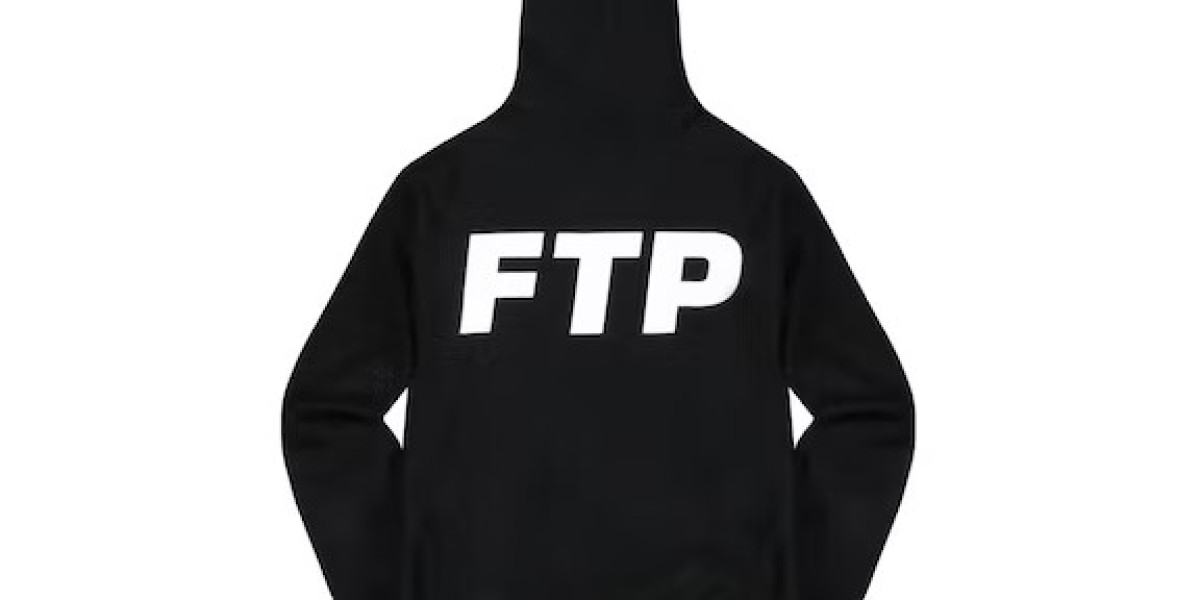Over the past decade, FTP Clothing (short for “F***ThePopulation”) has cemented itself as one of the most controversial and unapologetically raw streetwear brands in the fashion world. Born from a sense of rebellion, anger, and authenticity, FTP doesn’t follow trends—it sets its own rules. With bold graphics, confrontational slogans, and a cult-like following, FTP Clothing is more than just apparel—it’s a statement against conformity. But as fashion continues to evolve, the big question remains: What does the future hold for FTP Clothing?
The Origins: A Brand Built on Rebellion
FTP was founded in 2010 by Zachary Clark, a then-teenager from Los Angeles who turned his frustration with societal systems into wearable protest. From its inception, FTP aimed to provoke, challenge, and push boundaries. It wasn’t trying to be palatable or commercially friendly—FTP was raw and real.
The brand’s message was deeply rooted in anti-authoritarianism, as reflected in its name and designs. Whether it was police brutality, government corruption, or media manipulation, FTP became a symbol for youth who felt disillusioned with the mainstream. While some dismissed it as mere shock value, others saw it as a voice for a generation fed up with silence.
Streetwear's Shifting Landscape
To understand FTP’s future, it’s essential to examine where streetwear is headed. The last few years have seen a major transformation in the fashion industry. Streetwear has gone from niche to mainstream, with brands like Supreme, Off-White, and Palace collaborating with luxury fashion houses and dominating global fashion weeks.
This “luxurification” of streetwear has created both opportunity and tension. While brands enjoy unprecedented exposure and sales, some argue the soul of streetwear—born from rebellion and underground culture—is fading. In this context, FTP stands out for staying true to its roots. It hasn’t diluted its message for the sake of mass appeal. But can it keep that spirit alive while growing sustainably?
Maintaining Authenticity in a Commercial World
One of the biggest challenges FTP faces is preserving its raw identity in a market that increasingly favors polished, PR-friendly brands. Unlike many competitors, FTP has avoided traditional advertising and influencer marketing, instead relying on organic buzz, limited drops, and a fiercely loyal fan base.
This strategy has worked well so far, but as the brand grows, scalability becomes an issue. Can FTP maintain its exclusivity and underground credibility while expanding production and reaching wider audiences?
The answer likely lies in controlled growth. By staying selective about collaborations, limiting release quantities, and maintaining direct-to-consumer sales models, FTP can continue to resist corporate co-option while remaining profitable.
The Role of Technology in FTP’s Evolution
Looking forward, technology will play a crucial role in how FTP engages with its audience. The rise of Web3, NFTs, and the metaverse opens new possibilities for streetwear brands to build digital communities, create virtual fashion experiences, and expand without compromising physical production.
FTP could potentially experiment with digital-only drops, NFT-backed apparel ownership, or augmented reality (AR) fashion apps. These innovations would allow the brand to remain edgy and ahead of the curve while offering fans something fresh.
Furthermore, integrating tech into the brand’s culture could also reinforce its message. For example, encrypted messaging, decentralized platforms, and blockchain could align with FTP’s anti-establishment values.
Global Expansion and Cultural Relevance
While FTP has a stronghold in the U.S., especially within youth and underground circles, its global reach is still developing. With streetwear’s global boom, there’s huge potential for FTP to tap into markets in Asia, Europe, and Latin America—regions with strong street culture scenes and rising dissatisfaction with authority and tradition.
However, FTP will need to be thoughtful about localization. What resonates in Los Angeles might not land the same in Seoul or Berlin. Understanding local contexts without compromising their rebellious core will be key.
Collaborations and Brand Synergy
FTP has historically been very selective with collaborations, choosing partnerships that reflect its values. Past collabs with brands like HUF and musicians like XXXTentacion were rooted in cultural alignment rather than profit.
Moving forward, FTP’s collaborations will continue to shape its identity. By teaming up with other rebellious, independent, or underground entities—whether in music, art, or tech—FTP can reinforce its ethos while reaching new audiences.
Imagine a limited-edition FTP x Griselda drop, or a punk zine-style capsule with underground artists from Berlin. These kinds of collaborations not only offer freshness but also build bridges between communities that share similar anti-system values.
Sustainability and Ethical Production
One area where FTP could see significant evolution is sustainability. As climate concerns become central in the fashion industry, even the most disruptive brands are expected to address their environmental impact.
While FTP has largely remained silent on this front, future survival may require more transparency in sourcing, production methods, and labor practices. That doesn’t mean the brand has to lose its edge—on the contrary, making sustainability a form of protest against exploitative fast fashion systems could enhance FTP’s mission. https://ftpclothings.net/
Imagine a collection made from deadstock materials or recycled fabrics, accompanied by messaging about overconsumption and corporate greed. FTP could turn sustainability into another form of rebellion.
Community Power: The FTP Army
The core of FTP’s strength lies not in flashy marketing but in its community. The FTP Army—composed of fans, skaters, rappers, artists, and misfits—acts as a grassroots marketing machine. They wear the gear not just to look cool, but to belong to something greater.
Moving forward, nurturing this community will be crucial. FTP could invest more in events, pop-up experiences, and interactive platforms that make fans feel heard, involved, and empowered. A decentralized design contest, fan-curated lookbooks, or even user-led drops could keep FTP’s street-level credibility intact.
Conclusion: Rebellion Reimagined
The future of FTP Clothing isn’t about becoming the next Supreme or creating the next viral sneaker. It’s about continuing to be a voice for those who refuse to be silenced. It’s about pushing back against a world of corporate polish, algorithmic influence, and media manipulation.
As fashion trends come and go, FTP’s unfiltered message remains relevant. The brand’s future success depends not on how many stores it opens or how much it sells—but on how deeply it stays connected to the spirit that bir, hed it.
In a world that’s increasingly sanitized and commercialized, FTP’s raw, unapologetic edge might just be what keeps streetwear alive.

